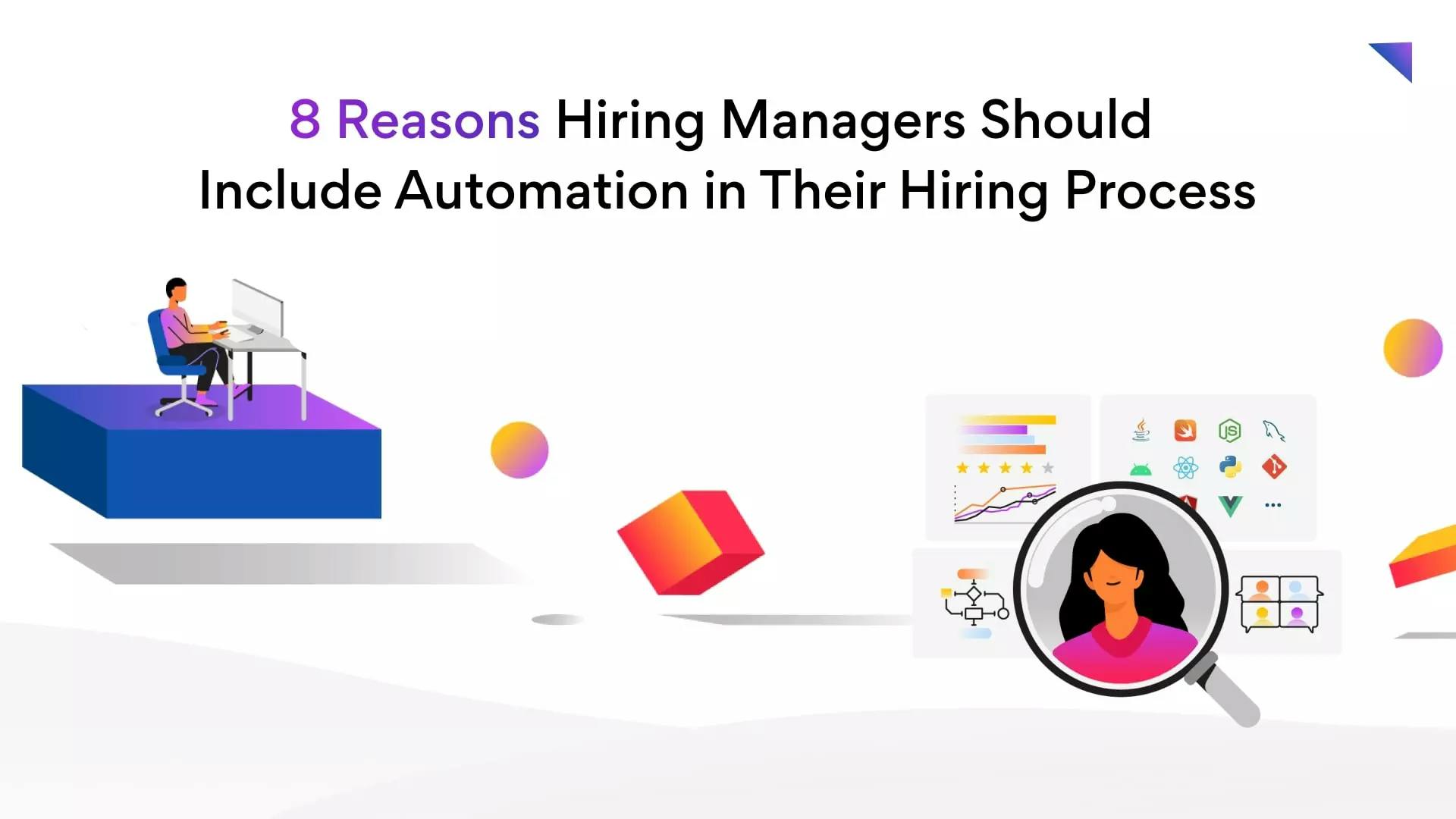Hire deeply-vetted back-end developers
Turing’s AI-powered deep-vetting talent platform helps you hire top back-end developers from a planetary pool of highly-skilled remote developers. Join Turing and unleash the world’s untapped human potential.
Get 3-week risk-free trial
4 days
to fill most roles, sometimes same day.
50+ hours
of engineering team time saved per developer on interviewing.
97%
engagement success rate.






Hire the top 1% of 3 million+ engineers who have applied to Turing
Here’s what customers have to say about Turing
See all reviewsTuring has been providing us with top software developers in Latin America. All our other vendors combined don't have the headcount that Turing does.
Program Manager of one of the world's largest crypto exchange platforms We hired about 16 ML engineers from Turing which reduced our hiring effort by 90% as compared to other vendors.
Engineering Manager of a NYSE-listed, Fortune 500 healthcare company We're super excited about Turing as we will scrap our existing lengthy interview process and lean on Turing's vetting to build up teams on demand.
Director of engineering of a US-based, multimillion-dollar finance company
Hire back-end developers through Turing in 4 easy steps
Tell us the skills you need
We'll schedule a call and understand your requirements.
We find the best talent for you
Get a list of pre-vetted candidates within days.
Schedule interviews
Meet and select the developers you like.
Begin your trial
Start building with a no-risk 3 week trial period.

How to hire a back-end developer? Skills to look for, interview questions and more
Hiring an efficient back-end developer for your business can be difficult and time-consuming. An expert back-end developer handles almost all behind-the-scenes tasks and focuses on a large number of tasks, including the development and management of APIs, building architectures, solving various system-related issues, and others.
To ease the effort, Turing assists all employers who choose to recruit back-end developers on their own. Turing offers the best remote pre-vetted back-end developers at half the price. Turing selects the top remote back-end developers after testing their expertise in several areas like Python, Java, PHP, SQL, Git, HTML, CSS, JavaScript, and others.
If you are a non-technical manager and are interested in learning more about the hiring process of a back-end developer, we've put up an excellent resource for you.
Skills to look for in a back-end developer
At a high level, back-end developers should have the following skills in his/her arsenal:
1. Knowledge of various back-end languages
You want to hire a back-end developer who has an in-depth knowledge of various back-end programming languages to develop and maintain web applications. These include Ruby, Python, Java, PHP, and others.
2. Understanding of data structures and algorithms
You want to hire back-end developers who understand the core concepts of data handling and have strong problem-solving abilities. Data structures and algorithms can be said as the foundation of a good developer. It allows developers to create and develop data-related tasks in both time and cost efficient manner.
3. Familiarity with databases
Database management systems (DBMS) help increase organizational accessibility to data which helps in completing tasks effectively and efficiently. There are several database management systems available, such as MongoDB, Oracle, MySQL, SQLServer, etc. You don’t want to hire a back-end developer who is just familiar or has very little knowledge of database storage. Instead, hire a back-end developer who has knowledge of various DBMS technologies and knows when and how to choose them.
Interested in hiring a back-end developer?
Join Turing and find top developers now!
4. Knowledge of the latest frameworks
Frameworks help in automating the software development activities. There are several popular back-end frameworks, such as NodeJS, Laravel, Django, Ruby on Rails, Flask, and others. It is common for back-end developers to have familiarity with most of the frameworks. However, you want to hire someone who knows exactly what framework to choose and what features should get prioritized in the first place.
5. Familiarity with cloud computing
With the ongoing digital transformation among organizations, it has become of utmost importance to understand how the cloud works. Cloud computing has several benefits: scalability, less capital expense, high performance, and more. You want to hire backend developers who have experience in working with various cloud computing services.
6. Familiarity with version control systems
Software development is incomplete without the knowledge of code versioning tools. There are several code versioning tools available that help in keeping track of each and every change in the coding. Back-end developers who have adequate knowledge of working with such platforms can work efficiently on any project.
It's important to not alienate any candidates in your job listing, but it's equally important to not be too general. The best job listings are inclusive because they will attract the right candidates regardless of when they decide to apply. To know more, check out our detailed guide on how to write the perfect back-end developer job description.
Create a hiring funnel
Creating a hiring funnel will provide you with numerous benefits, like assisting you in identifying the top skills and identifying a back-end developer who will fit into your company's culture.
What Turing does for you
Candidates screening
We will help you select the best talents and spot a back-end developer who will fit in your company culturally
Test task
We verify if the candidate really wants to work at your company and is able to spend 5+ hours to prove it by rigorous tests. It helps us to see a developer's caliber.
Technical test
Developers are asked back-end related questions and made to solve tricky problems. We use open questions. The goal is not only to test developers’ knowledge – we also want to find out their way of thinking.
Giving specific feedback
We provide explicit feedback on both the test task and the technical test after we have checked the developer's expertise.
What you do
Interview
ou can interview the shortlisted developers to check if the candidate matches your requirements and is a good fit for your company.
Hired/Not-hired
Hire intelligently with developers sourced by software, vetted by software, matched by software & managed by software.
Top interview questions to hire back-end developers.
Whether you're an IT recruiter or a project manager, you know that finding top developers is critical to the success of your project. Here are some sample interview questions to use when looking for a new back-end developer to work on your online applications.
Work with top back-end developers from around the world
Try Turing today and discover great developers to fuel your ideas
Here are some more back-end developer interview questions that you can ask to assess a developer’s caliber.
- What's the difference between faking, mocking, and stubbing?
- What's the difference between principles YAGNI and KISS?
- Are you familiar with The Twelve-Factor App principles?
- What is the difference between WHERE clause and HAVING clause?
- What Is Sticky Session Load Balancing? What Do You Mean By "Session Affinity"?
Latest posts from Turing
Frequently Asked Questions
What is the no-risk trial period for Turing back-end developers?
The purpose of the 3-week no-risk trial period is to start working with the developers and include them in the team. If you are satisfied with the developers, you keep working with them and pay their salary including the first 3 weeks. But, if you are not satisfied during the trial period, then you won’t pay anything.
How are Turing back-end developers different?
Turing offers top-quality, cost-effective, and highly productive back-end developers who belong to the top 1% of the world's remote developers. All Turing back-end developers are selected only after going through a series of rigorous tests where their skills are deeply vetted. Daily standups are mandatory for every Turing developer as they keep the developer and the customer in alignment with the discussed goal. All Turing remote back-end developers work for at least 4 hours in your time zone for your convenience.
How do I hire back-end developers?
You can hire back-end developers in a couple of clicks with Turing. It's an AI-powered deep-vetting talent platform where you will find talent from across the world who are comfortable working in your time zone.
How does Turing vet remote back-end engineers?
Turing has created the first and only AI-powered deep-vetting talent platform to vet remote developers. Turing tests developers based on actual skills vs. self-reported experience from traditional resumes or job interviews. Every developer at Turing has to clear our tests for programming languages, data structures, algorithms, system designs, software specialization, frameworks, and more. Each Turing developer goes through our automated seniority assessment test comprising 57 calibrated questions in 5 areas — project impact, engineering excellence, communication, people, and direction.
For which other skills can I hire remote developers from Turing?
With Turing, you can hire the best remote developers for 100+ skills such as React, Node, Python, Angular, Swift, React Native, Android, Java, Rails, Golang, PHP, Vue, DevOps, Machine Learning, etc. Turing also offers developers based on tech stack and seniority.
Are back-end developers in demand?
Back-end developers are surely in demand. If you are planning to scale your back-end engineering team, try Turing. It makes hiring easy for companies by offering pre-vetted remote back-end developers at half the price.
Hire Turing Developers
Let’s Find the Right People to Accelerate Your Roadmap
You don’t need more resumes. You need the right talent embedded in your workflows, aligned to your KPIs, and ready to build from day one. Let’s talk about what’s missing, what’s possible, and how we can help you move faster.









